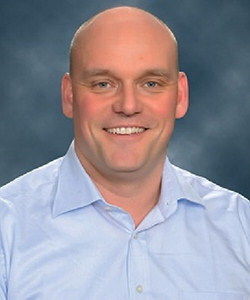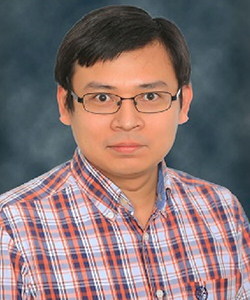Heat exchangers are integral to numerous industrial and commercial processes, and their optimal design and operation are vital for achieving effective and efficient heat transfer. However, fouling in heat exchangers can considerably diminish heat transfer efficiency, resulting in increased energy consumption, environmental impact, sustainability challenges, and even equipment failure and occupational safety risks. In recent decades, the wealth of academic research and its application to industrial systems have transformed the significance of fouling in operating heat exchangers.
For over two decades, the biennial Heat Exchanger Fouling and Cleaning Conference has been a forum for innovative thinking and exploring novel theoretical and practical approaches. The conference aims to provide a comprehensive understanding of heat exchanger fouling, with a particular focus on underlying mechanisms, mitigation strategies, and cleaning techniques. It is highly regarded for bringing together experts from industry, academia, and governmental research centers from across the globe to present their latest research and technological developments in fouling science, measurement and monitoring techniques, fouling impact quantification, fouling mitigation, and cleaning technologies. The conference has been organized at various locations around the world, including San Luis Obispo, USA (1995), Lucca, Italy (1997), Banff, Canada (1999), Davos, Switzerland (2001), Santa Fé, USA (2003), Kloster Irsee, Germany (2005), Tomar, Portugal (2007), Schladming, Austria (2009), Crete, Greece (2011), Budapest, Hungary (2013), Enfield, Ireland (2015), Madrid, Spain (2017), and Warsaw, Poland (2019).
From June 5–10, 2022, the 14th Heat Exchanger Fouling & Cleaning Conference took place in Wagrain, Austria, with over 86 delegates attending from 20 different countries. This conference represented the first gathering of experts in heat exchanger fouling and cleaning following the global pandemic. The conference featured lively discussions on a wide range of topics, including fouling in hydrocarbon systems, fouling in food processing, biofouling, fouling mitigation, computational fluid dynamics modeling, crystallization fouling, digital twin technologies, industrial cleaning methods, and surface modifications. In addition, the conference highlighted the importance of reassessing the quantification of the economic and environmental impact of fouling. The organizers received many interesting papers from both industrial and academic organizations, and a total of 48 papers were presented during the six-day conference. From these, nine papers were carefully selected for inclusion in this special issue of Heat Transfer Engineering.
The organizers of the conference express their gratitude to everyone who contributed to its success. They would like to extend a special thank you to the reviewers and authors of the papers for their hard work in meeting the review schedule and addressing the comments provided by the reviewers.
Finally, we would like to express our gratitude to Professor Afshin Ghajar, the Editor-in-Chief of Heat Transfer Engineering, for his unwavering commitment and willingness to publish this collection of special issues that showcase the latest research in the field. He has been a great advocate for these special issues, and we are truly grateful for his support.
The upcoming conference is scheduled to be held in Portugal in April 2024.
Disclosure statement
No potential conflict of interest was reported by the authors.
Additional information
Notes on contributors

Hans U. Zettler
Hans U. Zettler completed his PhD in Chemical Engineering at the University of Surrey, Guildford, UK, under his advisor Professor Hans Muller-Steinhagen. His doctoral work focused on fouling and fouling mitigation by design and surface modification in compact heat exchangers. He also possesses a mechanical engineering degree (Dipl.-Ing.) from the Technical University Karlsruhe, Germany. He completed multiple internships in industry throughout Europe while pursuing his education. As President at HTRI (Heat Transfer Research, Inc.), he oversees HTRI’s sales operations globally. He is a member of the German Engineering Society (VDI), an associate member of the Institution of Chemical Engineers (IChemE), and a committee member of the Heat Transfer Society, United Kingdom.

Edward M. Ishiyama
Edward Ishiyama is a Senior Technical Lead (SmartPM) at HTRI. He holds a PhD in Chemical Engineering from the University of Cambridge, United Kingdom. His research interests include applying heat transfer, process control, and thermodynamic principles to identify and solve problems associated with heat exchanger networks. His doctoral work entitled “Modeling of heat exchanger networks subject to fouling” has led to the development of software tools to manage fouling in heat exchanger networks worldwide. He is currently the secretary of the International Conference on Heat Exchanger Fouling and Cleaning.
